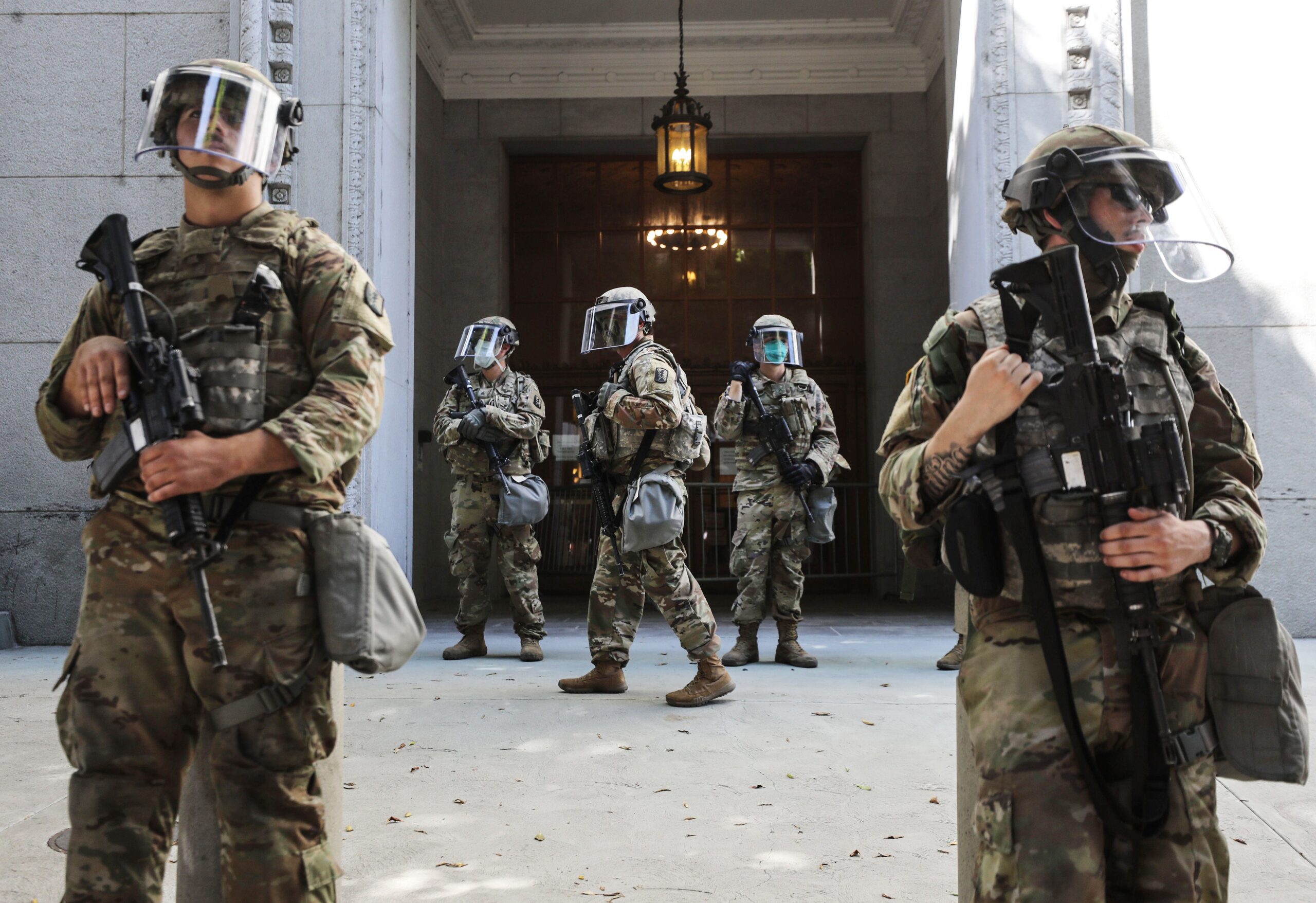For the First Time in Centuries, the Third Amendment Matters
But what is it?

And just like that, 2020 got even weirder. For the first time in … ever, people are talking about the Third Amendment of the Bill of Rights. Thanks to a misguided senator, Mike Lee, who thinks that troops that haven been called up to fight against our own people are entitled to rooms in hotels, we all get to remind him, and this administration, that troops don’t just get to come into home or hotels.
First off, you may be asking “What is the Third Amendment? I’ve never heard of it!” And that’s because it’s not sexy like the first with all that freedom of speech and assembly and worship, or creepy like the second with its guns. It’s about … quartering troops. Fun, huh?
Here’s the text:
No Soldier shall, in time of peace be quartered in any house, without the consent of the Owner, nor in time of war, but in a manner to be prescribed by law.
Simple right? And weird. Even John Mulaney has done a bit about it, because it just never seemed relevant.
since the 3rd amendment is trending thought i’d tweet one of my favorite @mulaney bits of all time pic.twitter.com/t1eZewx3UD
— garrett. BLACK LlVES MATTER (@justachemicaI) June 5, 2020
Welp, turns out that when a nation rises in protest of systemic racism and police brutality, and troops are called in to suppress said protests, that weird little amendment becomes super relevant. But it is weird so maybe that’s what Republican Senator Mike Lee of Utah was so confused when the Mayor of DC kicked troops out of hotels, which yes, under the 3rd, have no obligation to house troops:
I apologize for every time I made fun of the third amendment https://t.co/If9AECTNyO
— Sam Adams (@SamuelAAdams) June 5, 2020
Now, John Mulaney made a good point in the bit embed above: why is this the third thing in the Bill of Rights? And why are guns second? In order to understand both of those, and indeed, most of the Bill of Rights, you have to look at the context in which it was written. Nearly every amendment in the Bill of Rights was in direct response to oppressive acts and laws that the British forced on America to keep them under control.
In the lead up to the American Revolution, the Brits enacted the Intolerable Acts, which took away much colonial sovereignty, taxed them, and screwed with the justice system. And also required that British troops be housed and paid for by the colonies. Things like making sure militias were armed (NOT PRIVATE CITIZENS), that people could speak out and assemble, have fair trials and not have their homes searched or their property seized, have a fair jury and even not have to quarter troops were all in direct response to oppression from the crown—these were all a response to real conditions colonists had faced.
The Third Amendment was always the red-headed step-child of the Bill of Rights, but it, like so many other amendments, was enacted to prevent the nascent US government and states from sliding into tyranny. It took us several hundred years, but that’s what it’s doing now. A government that forces private home and businesses to quarter troops in time of peace is not a just one, and this is the kind of nonsense the founding fathers were worried about.
It is amazing and yet so fitting that even the Third Amendment is rising to slap down Trump and the oppressive systems he wants to perpetuate. It’s also pretty great for incredibly nerdy jokes on Twitter at the expense of Senator Lee (who deserves every bit of derision) and other Trump enablers like Lindsay Graham.
I know Linds went to law school, but will someone please explain the third amendment to him? @LindseyGrahamSC https://t.co/OZbYg3o7hF
— ResistingFeministMom (@miscdeb) June 5, 2020
The third amendment today pic.twitter.com/qcpYYFsxAY
— Alexander at a safe distance (@WolfDrinkCoffee) June 5, 2020
and the third amendment was there, right when America needed her most https://t.co/Mi2fb0Efrg
— Grace Panetta (@grace_panetta) June 5, 2020
How I feel when the under-loved Third Amendment finally gets used. James Madison representing today #quartering pic.twitter.com/S6YjGMoCXE
— KFall (@kfall16) June 5, 2020
The Third Amendment is trending on Twitter.
James Madison: pic.twitter.com/MB6GQm6Eib
— Arizona (@arizonagarbage) June 5, 2020
Did someone just bust out the Third Amendment like an ancestral weapon discovered deep inside a musty temple https://t.co/GIt2l00mUu
— Laura Hudson (@laura_hudson) June 5, 2020
And this, my friends, is why the Constitution matters.
(image: Mario Tama/Getty Images)
Want more stories like this? Become a subscriber and support the site!
—The Mary Sue has a strict comment policy that forbids, but is not limited to, personal insults toward anyone, hate speech, and trolling.—
Have a tip we should know? tips@themarysue.com